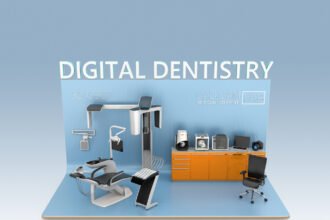By the time you reach 12 to 14, most of your baby teeth will probably be replaced with permanent ones. This new set of teeth will be your chewing companions until the end of your life, unless they have to be extracted and replaced with artificial ones.
When you turn 18, a new set of teeth will begin to emerge. These are called wisdom teeth, which usually come in between the ages of 18 and 24. And despite their amusing name, this last set of permanent teeth has no use.
Naturally, a wisdom tooth isn’t problematic. However, it can cause issues if the mouth doesn’t have enough space for it to emerge correctly. It’ll have no other option but to push the surrounding teeth—this is called an impacted wisdom tooth.
An impacted wisdom tooth may cause immense pain and tingling, making it difficult to speak or eat. That’s why removing wisdom teeth is common for many people. This way, you can be free from all the pain these teeth are causing you.
The emergence of wisdom teeth is often the cause for concern among young adults. While the majority of these third molars do not typically cause problems, it’s important to be aware of the signs and symptoms that may indicate an issue.
Furthermore, you can also prepare yourself by knowing the telltale signs indicating that your wisdom teeth are coming in. Here are 4 telltale signs your wisdom teeth are coming in and when you should consider a wisdom teeth removal:
1. Irritated Gums
A simple gum irritation, or a mild periodontal disease, is a common occurrence. In fact, most people may experience it at least once in a lifetime. Surprisingly, they’re not afraid of it because the gum naturally heals itself over time with regular toothbrushing and flossing.
However, if the irritation occurs at the back of your mouth, and it so happens that you’re at the right age (17-24 years old), it might not be because of inconsistent brushing or flossing. It might be because of your wisdom teeth coming in.
When a wisdom tooth comes in, the surrounding gums usually swell and become irritated. This is understandable because there’s a tooth pushing its way in. And unfortunately, it won’t be an easy process.
If you’re experiencing irritation around the gums located at the back of your mouth, consult your dentist immediately. And don’t be surprised if they tell you that the reason why your gums swell is an emerging wisdom tooth.
Your dentist may recommend a wisdom tooth extraction. This is a recommended treatment procedure to relieve the pain and irritation around the gums.
2. Accidental Tongue Or Cheek Bites
Sometimes, when a wisdom tooth comes in, it tends to push other teeth around it, especially if there’s not much space for it to erupt straightly. However, you won’t be able to notice your teeth shifting for a while because it happens slowly.
You might experience occasional pain and redness at the back of your mouth. But still, you won’t be able to as some of your teeth have started shifting because of an emerging wisdom tooth—until you bite the inside of your cheek or tongue repeatedly.
That’s because it’ll take time to become used to your new teeth arrangements. This will cause you to mistakenly bite your cheeks and tongue, especially when eating. If this occurs more frequently than expected, look for other symptoms and consult a dentist immediately.
3. Headaches And Jaw Pain
Wisdom teeth often cause pain in the mouth, particularly in the gums and surrounding teeth. Unfortunately, the pain can extend outside the mouth (e.g., headaches).
Although the pain often occurs in the mouth when wisdom teeth erupt, it’ll most likely extend beyond that. The pain can radiate through your jaw and cause moderate to severe headaches, especially if two or more teeth emerge at the same time.
This is because emerging wisdom teeth tend to push nearby teeth to create enough space for them. This occurrence can cause major discomfort and pain around your jaw because your mouth is slowly adjusting to the changes.
Sometimes, closing and opening your mouth can be extremely difficult. And in other rare cases, the wisdom teeth may force your sinuses as they emerge, causing headaches.
4. Bad Breath Or Halitosis
Impacted wisdom teeth occur because the mouth doesn’t have enough space for them to emerge. They come in sideways and become trapped under the gums. Although they often cause pain, irritation, and discomfort, you may experience another unpleasant symptom—bad breath.
When a tooth grows in an awkward position, it creates spaces toothbrushing and flossing can’t reach. This is where food particles get stuck, encouraging bacterial growth.
You’ll soon realize that no matter how much you brush or floss your teeth, there’s always a lingering unpleasant taste where wisdom teeth emerge. If that’s the case, see a dentist immediately to identify the underlying cause and address the problem right away.
Final Words
Wisdom teeth are the last set of molars to emerge at the back of the mouth. They usually create issues that lead to pain, irritation, and discomfort. Knowing the signs above may help you prepare for the things to do next. Usually, dentists recommend a wisdom tooth extraction to relieve the pain, irritation, and inflammation around the mouth. This is the best course of action to address the issues caused by wisdom teeth permanently.








